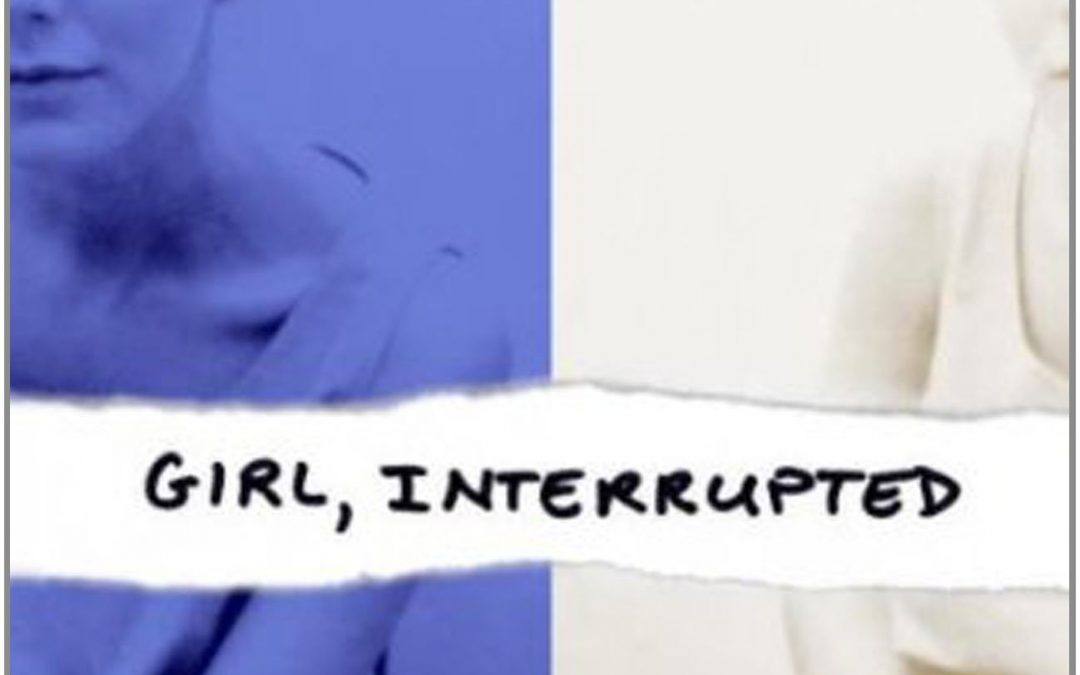When I was in high school, I watched the movie Girl, Interrupted, without even considering that it might have been based on a book. So at the beginning of this year, when I discovered it was actually a book first, of course I had to read it.
Girl, Interrupted, by Susanna Kaysen, was an incredibly engaging memoir about Kaysen’s stay in a mental institution when she was 18. After a session with an unknown psychiatrist, Kaysen was put in a taxi and sent to McLean Hospital (the same place Sylvia Plath, Robert Lowell, James Taylor and Ray Charles had spent some time), where she spent the next two years of her life in a ward for teenage girls.
Kaysen provides a clear picture of life in a mental institution and the intricacies of the mind and madness.
Here are three things I enjoyed most about it:
1. The courage. Kaysen shared documents and a truthful interpretation of her time in the hospital. It takes a brave person to share about a mental health journey in such a transparent way.
2. The characters. All of Kaysen’s friends in the hospital were very interesting characters who could be, by turns, completely sane and altogether mad. Her characters proved the delicate balance between sanity and madness.
3. The insight. I’ve been conducting research on madness and mental institutions, and this book was extremely valuable to understanding the inner workings of hospitals, though Kaysen was admitted in the late ’60s. She also provides a very deep picture of those who suffer from mental illness and a compassionate view of madness and struggle. She didn’t completely resolve the book, either, because mental health is never a completely resolved thing.
My favorite lines from the book come from its opening:
“People ask, How did you get in there? What they really want to know is if they are likely to end up in there as well. I can’t answer the real question. All I can tell them is, It’s easy.”
And these words, near the end, were disturbing:
“I began to feel revulsion too. Insane people: I had a good nose for them and I didn’t want to have anything to do with them. I still don’t. I can’t come up with reassuring answers to the terrible questions they raise.
“Don’t ask me those questions! Don’t ask me what life means or how we know reality or why we have to suffer so much. Don’t talk about how nothing feels real, how everything is coated with gelatin and shining like oil in the sun. I don’t want to hear about the tiger in the corner or the Angel of Death or the phone calls from John the Baptist. He might give me a call too. But I’m not going to pick up the phone.
“If I who was previously revolting am now this far from my crazy self, how much further are you who were never revolting, and how much deeper your revulsion?”
All in all, the book was a gripping read, full of emotion, information, and philosophy.
*The above is an affiliate link. I only recommend books that I personally enjoy. I actually don’t even talk about the books I don’t enjoy, because I’d rather forget I ever wasted time reading them. But if you’re ever curious whether I’ve read a book and whether I liked or disliked it, don’t hesitate to ask.


